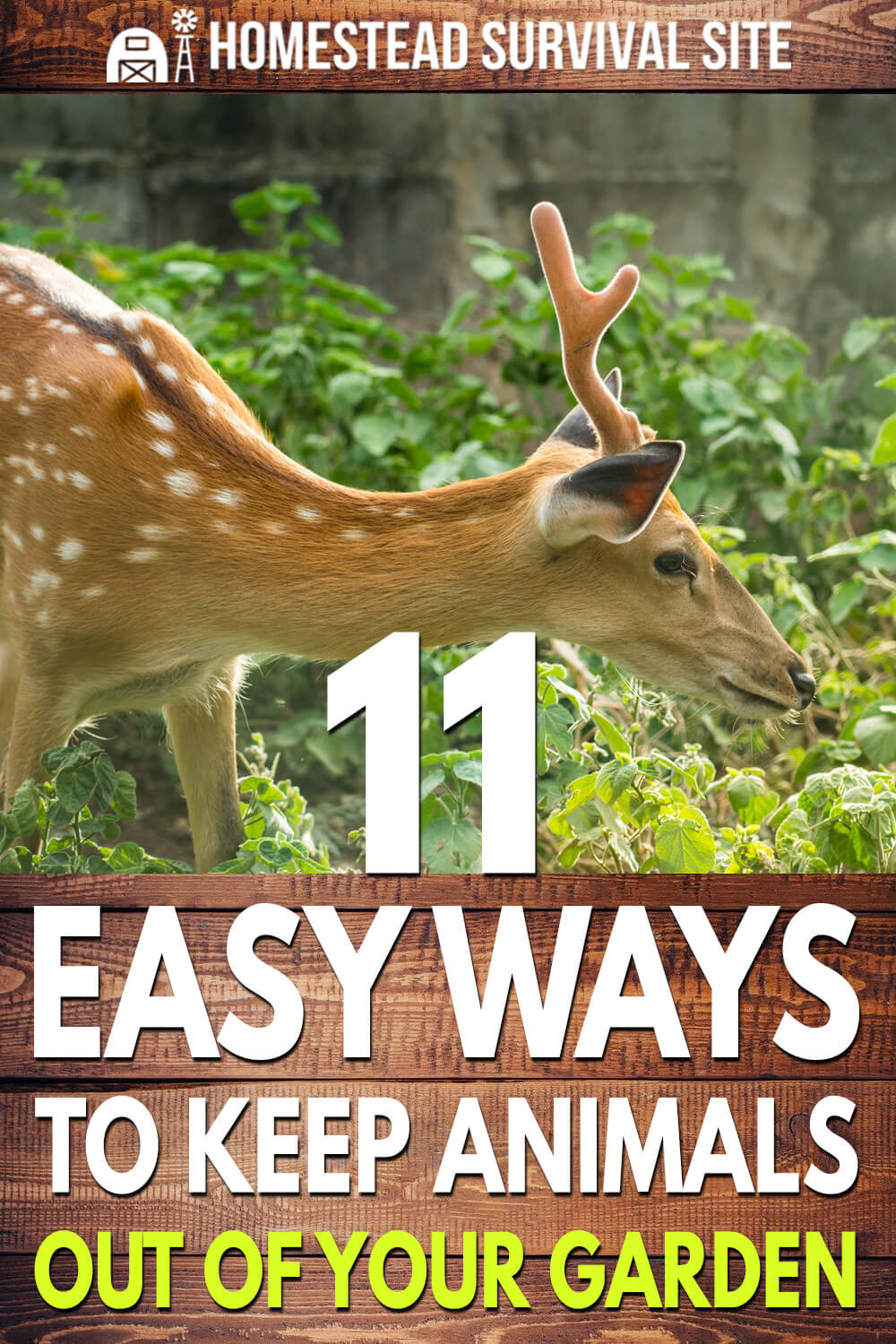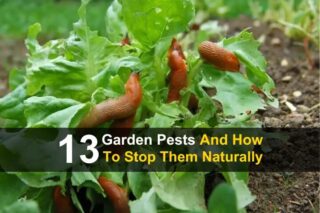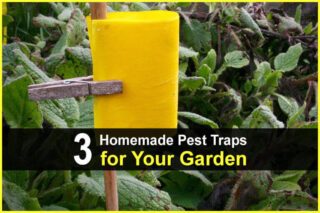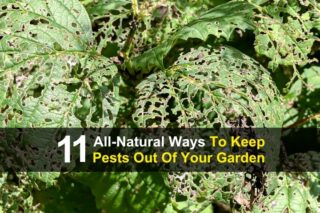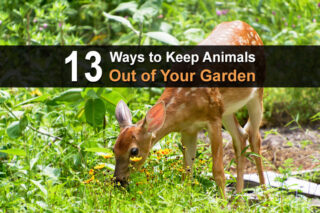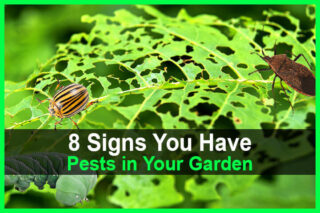Estimated reading time: 7 minutes
One of the biggest threats to any garden is unwanted animal visitors looking for a snack. Although there are commercial and chemical methods of prevention, there are also a variety of natural remedies proven to be effective at keeping animals away from the garden.
Naturally, creating a barrier of some sort around your garden is going to give it the best defense. However, if critters are eating your garden veggies right now, you might not have time for a project like that. Plus, most fences don't look very nice.
In this article, we'll explore some simple and effective ways to keep animals out of your garden. All of them are relatively easy to set up and don't involve harmful chemicals or anything like that. There are two main types: aromatic deterrents and sensory deterrents.
Want to save this post for later? Click Here to Pin It On Pinterest!
Aromatic Deterrents
Most garden-munching animals have a great sense of smell and would be happy to chomp down a variety of fruits, veggies, and even flowers in your garden like pansies, tulips, lilies, petunias and more. With spring being a booming mating season, you can expect pesky animals to feast on your hard work.
In spring, they may eat early flowers to the ground, but even in winter they can go after some of your barky bushes and shrubs. One way to tell that it's rabbit damage is that rabbits use their top and bottom teeth to make a clean cut on plant shoots and branches whereas a deer will leave more of a torn appearance behind.
Voles, chipmunks, and squirrels may eat your bulbs from below the ground or tear up plant roots. These home remedies focus on stacking the odds in your favor.
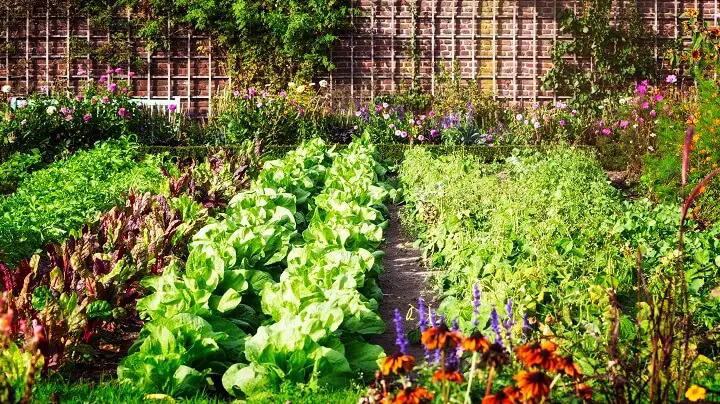
1. Homemade Repellent
Because of these animals’ keen sense of smell, you can use this attribute to your advantage in repelling them. Both bunnies and deer, for example, are averse to garlic, onions, and spicy foods. As you cook through the week, keep the ends and peel off your garlic and onions to create a solution to deter animals.
Soak the plant parts in some water for a few days (less water to more onion/garlic for maximum concentration), then mix the liquid with a bit of hot sauce and dish soap to spray around your plants, not on them. Since it's made from water, this will need to be reapplied frequently.
Raw eggs are another fragrance that can be effective, though some animals get used to it. Eggs can be a great addition to the homemade repellent, and it is an ingredient in many store-bought variations. You could also try some crushed pepper flakes around favorable plants for a bit more longevity.
2. Coffee Grounds
Spread leftover coffee grounds through your garden. Many animals steer away from the smell of coffee due to the caffeine component which is harmful to animals. Coffee grounds will also help prevent ants, slugs, and snails.
3. Vinegar
Vinegar is acidic enough that most animals will avoid the area. You can soak hot peppers or corn cobs in vinegar to line your garden for this fragrant deterrent to last.
4. Deterring Plants
Certain herbs and flowers have an aroma that many animals hate. You can plant them around the perimeter of your garden, but this method may not always be effective if the animals are hungry enough.
Marigolds, irises, daylilies, balloon flowers, daffodils, and lavender are some floral options bunnies and deer tend to avoid. Chives and sage tend to be herbs that they avoid as well, and you can strategically plant them near a veggie garden to keep unwanted visitors away.
Additional safer veggies to be avoided by bunnies may include artichokes, tomatoes, onions, asparagus, and squash, though a hungry bunny can get desperate, especially with young plants. Deer avoid rhubarb, root vegetables, and aromatics like onions and garlic and will avoid spiny or prickly foliage.

5. Ground Animal Byproduct
You can deter animals using blood meal or bone meal which you can get at any store that sells gardening supplies. They are made from what they sound like: blood and bone, signaling that predators may be nearby.
Both products can break down quickly in rain, so you may need to reapply throughout the season. Blood meal will add nitrogen to the soil, and bone meal adds calcium and phosphorus levels. Plantskydd is made with animal blood and claims to be the most effective and longest-lasting brand. Personally, I’ve had a better result with it for rabbits than voles.
6. Predator Urine
In an effort to scare animals away, you can purchase predator urine as a fragrant preventative. Research on the effectiveness of this method varies, and it would be worthwhile to make sure that the predator urine matches the threat to the animal you wish to keep away. Coyote or fox tend to be the most common.
7. Human Hair
Though this seems like a gross method, many swear that it helps keep animals away, and beneficially it is a great addition to compost, adding valuable properties to soil.
Sensory Deterrents
For rabbits, birds, voles, and deer, there are some sensory deterrents beyond smell that may work to help support your cause.
8. Decoys
For smaller animals, mounting an owl in your garden might be a visual that gives them pause. Particularly birds, mice, and voles may exercise more caution to approach a garden protected by a fake owl.
In the early stages of seeds planted, birds can take off with your bounty before roots have a chance to develop, and in that case this method might be worth a shot. However, an owl standing still may only work temporarily, whereas creating some movement or even moving the owl around the garden may offer better protection.
9. Visual Distractions
Other visual disincentives such as pinwheels, reflectors, or ribbons can naturally create some unusual movement to an animal to help keep them from entering a garden. You can string some old CDs from nearby tree branches and be creative in the process of finding what works.
10. Sprinkler Systems
A motion-activated sprinkler system will create an unpleasant element of surprise for an animal sneaking by for a visit. For the method to be effective at night, look for a system with infrared sensors.
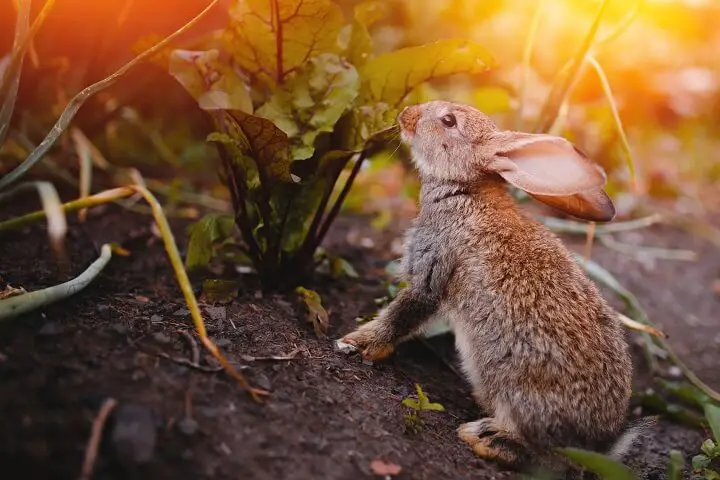
11. Ultrasonic Animal Repeller
In terms of sound, a prevention method for small animals visiting the garden can be a sensor-run ultrasonic animal repellent.
This item, found in garden supply areas of stores like Home Depot, create a high-pitched sound that is heard by animals to keep them at bay. Many will have solar panels with battery options to make them sustainable while also effective at night.
Proactive vs. Reactive
When considering your long, and hopefully bountiful, garden season, it is best to think proactively so you do not find yourself in a position where you are forced to be reactive. Finding the best natural deterrents for your garden will require some assessment of the animals of concern, the plots you are protecting, and the time and financial investment you are willing to take.
Be open to trial-and-error and do not allow yourself to be discouraged. There are plenty of natural and humane ways to deter these animals from ripping through your garden, meaning that everyone can enjoy nature with ease.
Like this post? Don't Forget to Pin It On Pinterest!

